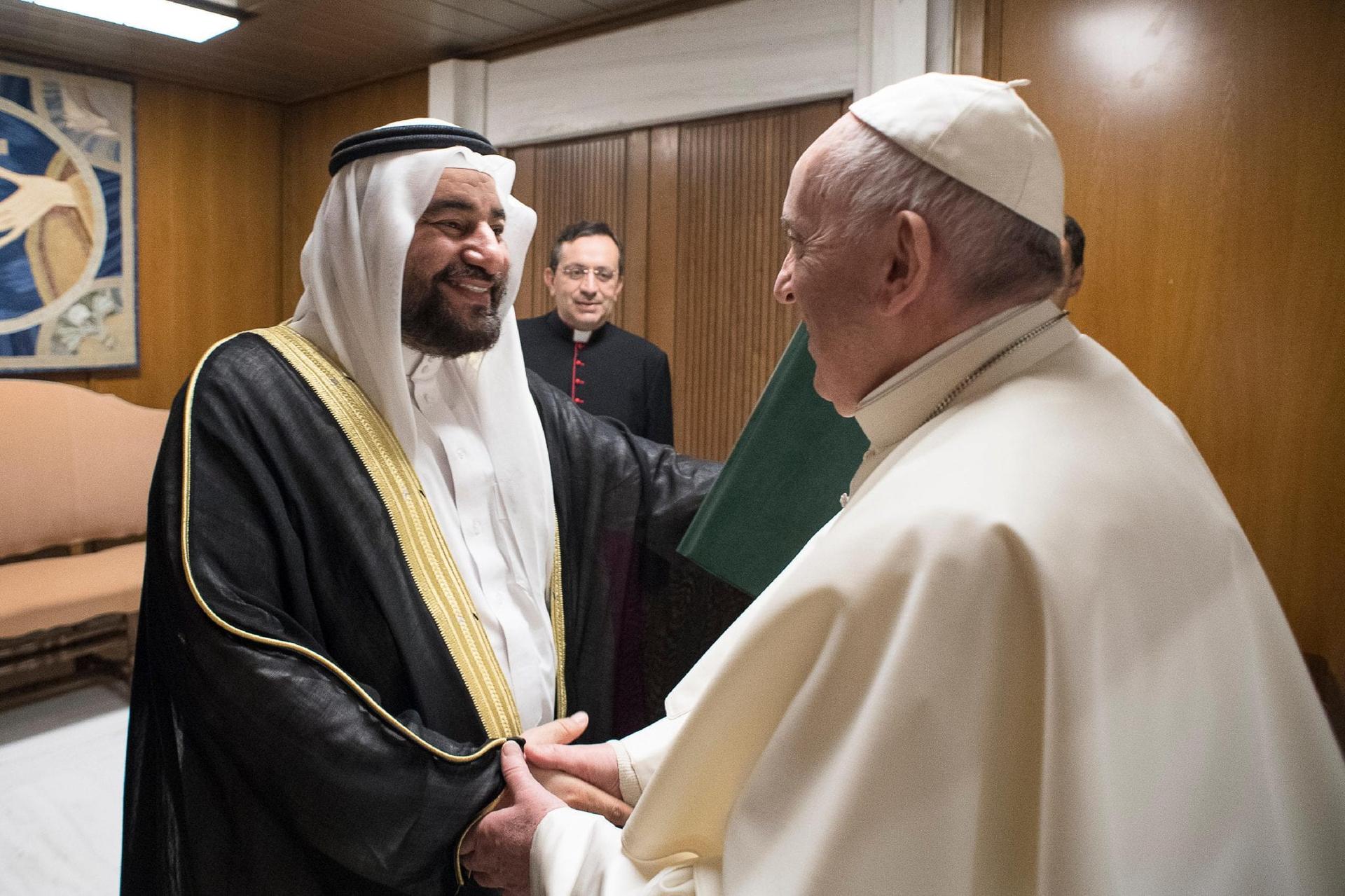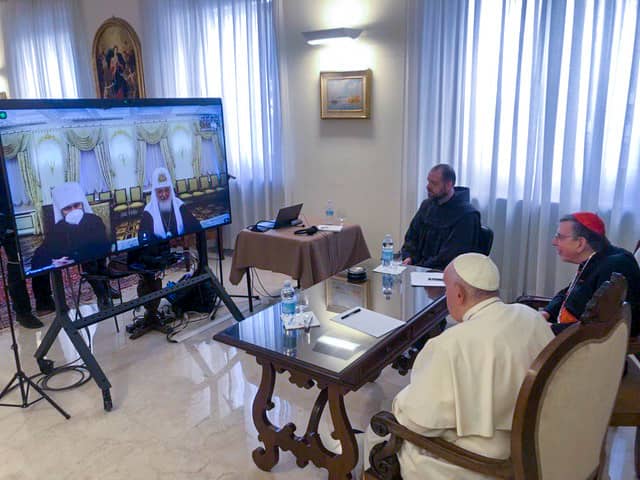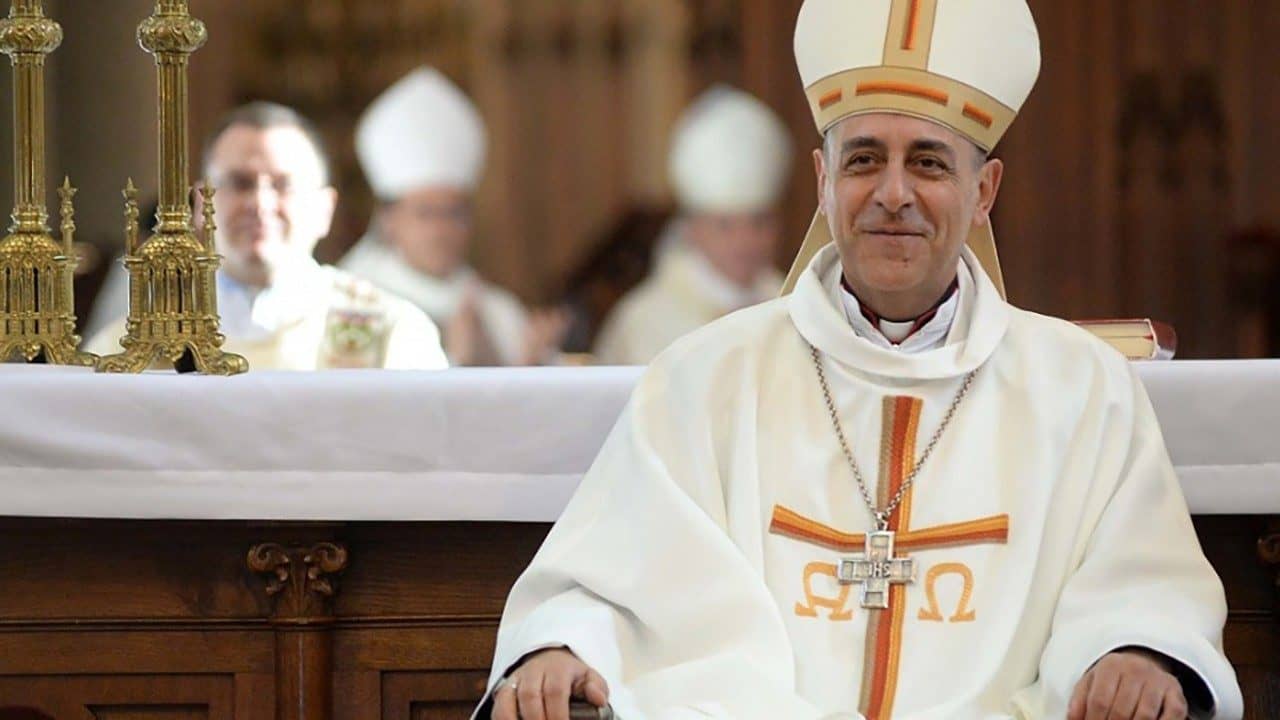Anyone who’s covered the Vatican for a while knows that a good chunk of the job isn’t so much reporting the actual news, but debunking “fake news” that others have shot out into the ether. We got an example this week, with a bogus story that Saudi Arabia had entered into an agreement with the Vatican to support the construction of Christian churches in the country.
At the moment, Saudi Arabia is the only country in the Middle East without a single functioning Christian church within its borders.
In essence, the story, reported by the Egypt Independent, was that the Secretary-General of the Muslim World League, Sheikh Mohammed bin Abdel Karim Al-Issa, and French Cardinal Jean-Louis Tauran, President of the Pontifical Council for Interreligious Dialogue, had struck an accord for the construction of churches for Christians living in Saudi Arabia during an April 16-21 visit by Tauran to Saudi Arabia.
During that trip, Tauran – who has strong street credibility in Muslim nations, given his history as an outspoken opponent of the 2003 U.S.-led invasion of Iraq – was received at the royal palace by King Salman bin Abdulaziz Al Saud, who acts as the country’s prime minister as well as the custodian of the Two Holy Mosques, and his son, the Crown Prince Mohammed bin Salman. Tauran also visited the Center for the Fight against Extremist Thought and met with the current grand mufti of Saudi Arabia, Abdul-Aziz ibn Abdullah Al ash-Sheikh.
The alleged deal was reported by Breitbart in the U.S., but when Breitbart later reached out to Vatican spokesman Greg Burke for comment, he denied any deal had been struck.
Constitutionally speaking, Saudi Arabia is premised on Wahhabism, meaning a strict interpretation of Islamic law. In general, public attitudes towards Christianity are fairly negative, and Christians are consigned to a sort of second-class citizenship. Christians and members of other religious minorities are severely restricted in their ability to gather for worship, or to share their faith with anyone else.
Three Christian house churches were reportedly closed recently, some after being raided by police. In the past year, several Christians have been forced to leave the country as a result of their beliefs or faith-related activities. Several years ago, when an Italian soccer team toured the county, it was asked to replace crosses on its uniforms with dashes in order to avoid giving offense.
Christian women face special threats, with rape and sexual harassment being regular features of life in the overwhelmingly Muslim nation.
Today, that anti-Christian bias is reportedly taking on an even sharper edge due to a rapid spike in the country’s Christian population. Because of an influx of expatriate workers from Lebanon, the Philippines, India, Sri Lanka, Pakistan and Korea, the Catholic population alone of Saudi Arabia today is estimated to be around 1.5 million, out of a total population of around 32 million.
Other nations in the region are trying to come to terms with their swelling Christian populations, which may be why the bogus report about Saudi Arabia initially came across as credible.
Recently, King Hamad bin Isa Al Khalifah of Bahrain agreed to donate land for the construction of a Catholic church, to be called “Our Lady of Arabia,” which will serve as the cathedral for the Vicariate of Northern Arabia. Without a church, the custom up to this point has been that guest workers who want to attend Mass generally go to one of the Western embassies, especially Italy’s, or they gather either in a private home or on the grounds of a foreign-owned oil company.
Bishop Camillo Ballin, a 73-year-old Italian and member of the Comboni missionary religious order, leads this burgeoning Catholic community. He was in the United States in 2014 to raise money for the cathedral in Bahrain, which he termed “a good sign of dialogue which should be imitated by other countries.”
Though Ballin has to walk a tightrope in talking about the situation his flock faces, he didn’t hide the fact that he lives in one of the world’s most difficult places to be a Christian.
“It’s not the policy of the governments of these countries to convert anyone or to impose Islam,” he said. “But those pressures are often applied by individuals and radical Islamic movements.”
In light of the Vatican denial, two questions above all suggest themselves: Who put out the false report, and why now?
While we don’t know for sure, the fact that the story first appeared on an Egyptian news site suggests it was the Saudis, or at least someone with close ties to the Saudi regime, who instigated it. The face-value explanation would seem to be that someone wants the Saudis to be seen as not overtly hostile to Christianity, or to religious pluralism generally, presumably in order to discourage trade embargoes or other sanctions Western governments might impose.
The U.S., for instance, imported about $16 billion in oil from the Saudis in 2016, and obviously it would not be in the Saudis’ interests to see that dry up.
How to manage Western trade relations with a country that continues to frustrate religious freedom claims is something experts will continue to debate. In the meantime, it remains unclear when the cherished dream of Saudi Arabia’s Catholic minority to open its own church might be realized.
In 2014, Ballin said, “The day we can build a church in Saudi Arabia will be a glorious day not just for the Saudis but for the whole world.”
Four years later, it would seem that day is not here yet.

















